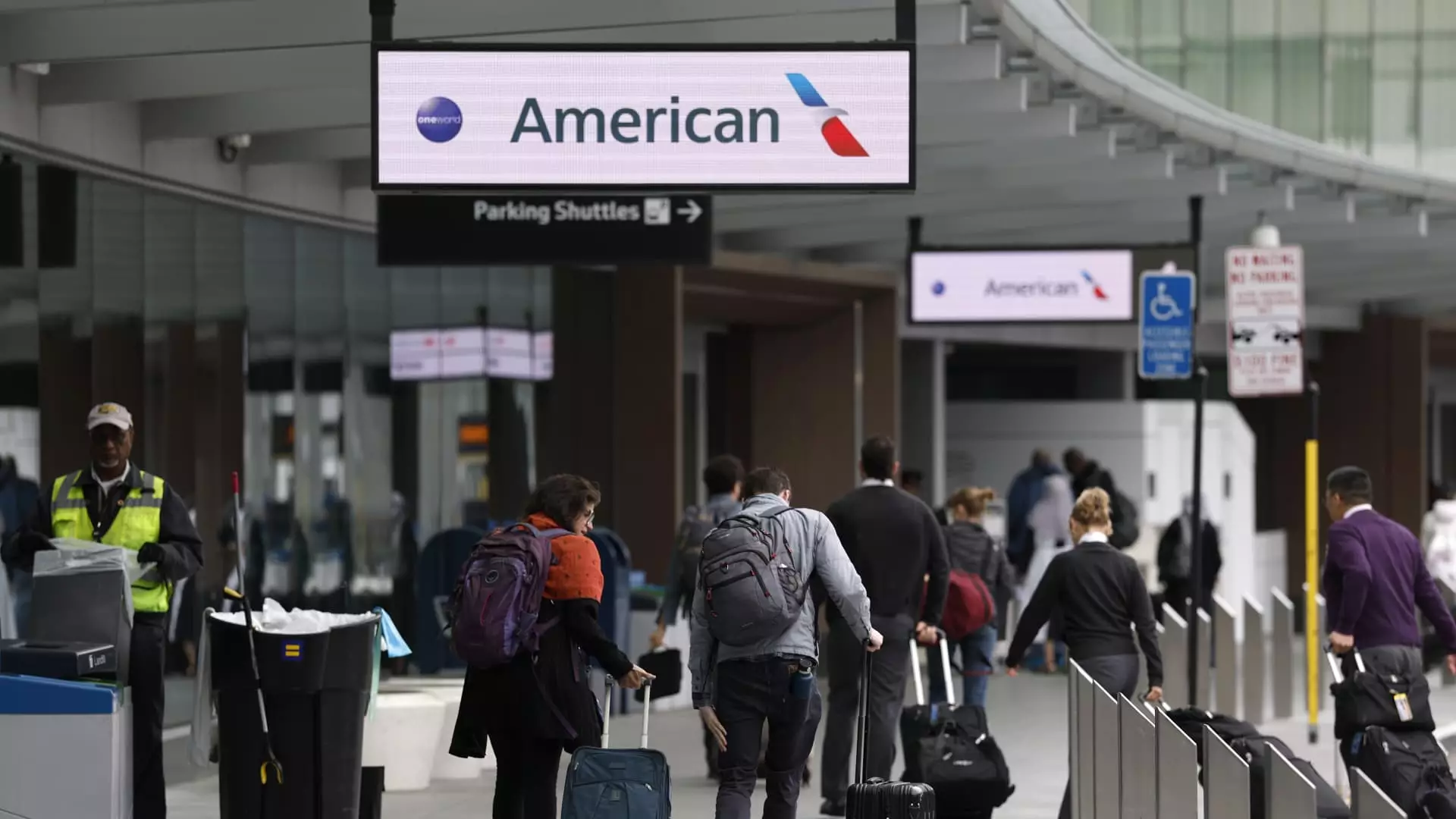In a striking move that has sent ripples through the airline industry, CEOs of major carriers have expressed serious concerns about the future of domestic travel. Following a series of earnings calls, it’s evident that the optimism typically associated with high summer travel season forecasts is waning, primarily due to a cocktail of economic uncertainty and geopolitical woes. American Airlines’ CEO, Robert Isom, aptly captured the collective anxiety: “Nobody really relishes uncertainty when they’re talking about what they could do on a vacation and spend hard-earned dollars.” The ambiguity surrounding the economy is not just a casual inconvenience; it’s a significant deterrent, especially for consumers weighing the costs of travel against an unpredictable financial landscape.
This environment of hesitancy is compounded by “whipsawing” tariff policies and volatile market conditions in a post-Trump era. It raises the question: can travelers truly feel secure enough to embark on leisure trips when economic caution seems to pervade every decision they make? While the airlines had initially set optimistic growth forecasts for 2025, they are now forced to grapple with the potential for reduced capacity and profits, a trend that could lead to a downward spiral affecting more than just corporate earnings.
The Unraveling of Capacity Growth Plans
Major carriers including Delta Air Lines, Southwest Airlines, and United Airlines are now reassessing their growth trajectories. In an industry reliant on numbers, the increasing oversupply of seats contradicts the positive customer sentiment airlines had banked on. Following their raised expectations, these airlines find themselves withdrawing 2025 financial outlooks, citing the unpredictable landscape of the U.S. economy. It’s a situation reminiscent of a high-stakes game of poker where the players begin to fold as the reality of their hands becomes clear.
United Airlines has even posited two potential financial scenarios—one anticipates a downturn, while the other assumes continued growth. The bleak outlook of recession has already translated into plummeting airfare; according to the Bureau of Labor Statistics, prices for plane tickets dropped by 5.3% in March compared to the previous year. Such situations suggest a disturbing trend: airline companies are inflating their capacities while demand falters, a recipe for economic disaster that could result in job cuts and more significant hardships for their employees.
Corporate Travel’s Declining Trajectory
Corporate travel was once regarded as the sturdy backbone of airline revenue, often less sensitive to prices and booked last-minute—both characteristics that ensured higher profit margins. The downturn in this segment, however, is telling. As Conor Cunningham, a travel and transportation analyst, points out, “If uncertainty pops up, the first thing that goes away is corporate travel.” The airline executives’ concerns about stagnation in corporate travel paint a grim picture. Delta CEO Ed Bastian noted that anticipated growth had quickly plateaued, hinting at a deeper malaise within an industry that relies heavily on business travelers.
With decreasing corporate expenditures, airlines could be forced to usher in more competitive pricing, further eroding their profit margins. American Airlines is grappling with the notion that fewer seats are needed in the crowded skies, a concept that raises profound questions about sustainability and strategic planning within the airline sector. The once-thriving business travel ecosystem is shrinking in the face of economic conditions that affect spending habits across multiple demographics.
The Outlook for Leisure Travelers
Interestingly, despite the downturn in business travel, a glimmer of hope remains for those seeking leisure flights. While U.S. travelers are still venturing overseas, the prevailing uncertainties have a lingering effect on overall consumer behavior. The lingering question persists—will vacationers still feel confident enough to allocate their hard-earned money to vacations, or will they hold back in anticipation of an economic collapse?
While airline executives remain cautiously optimistic about the summer months, their collective focus on regaining certainty highlights the fragility of the current landscape. “Certainty will restore the economy, and I think it will restore it pretty quickly,” Isom noted. Yet, the issue runs deeper than mere optimism. The ongoing volatility requires robust strategic responses that do not merely depend on the shouldering of burdens by loyal customers. As the airline industry continues to navigate these turbulent waters, the repercussions of a potential recession may very well redefine travel as we know it. The challenge lies not only in managing surplus capacity but also in revitalizing consumer confidence in an increasingly unstable economic future.

